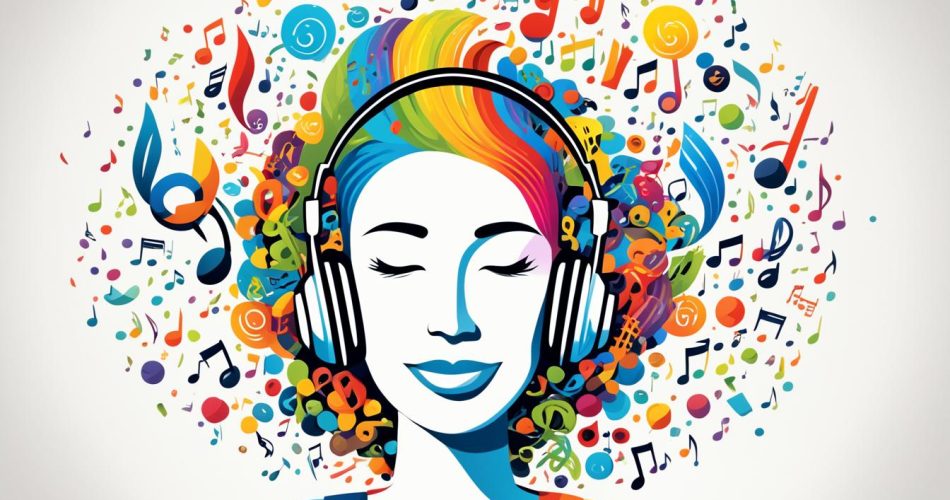Hi there! I’m excited to share with you the incredible benefits of music for our mental health and overall well-being. Music has a unique way of touching our souls, evoking emotions, and bringing joy to our lives. But did you know that it goes beyond just entertainment? Engaging with music can have profound effects on our mental health and well-being.
Research conducted by Professor Gilles Comeau from the University of Ottawa has paved the way for integrating music into healthcare services through the Music and Mental Health Research Clinic. Music therapy, relaxation, stress relief, healing, and mental health improvement are among the key areas being explored. The beauty of music lies in its accessibility and complexity, which has the potential to trigger the release of dopamine, the ‘feel-good’ hormone.
Moreover, music has the power to promote cognitive well-being and combat social isolation. It is crucial that music participation and the benefits it offers are accessible to all individuals, including marginalized populations. By doing so, we can collectively enhance our well-being and create a healthier, more inclusive world.
Key Takeaways:
- Engaging with music has positive impacts on mental health and well-being.
- Music triggers the release of dopamine, the ‘feel-good’ hormone.
- Music can promote cognitive well-being and combat social isolation.
- Access to music participation should be inclusive for all individuals.
- Professor Gilles Comeau’s research explores the integration of music into healthcare services.
The Power of Music for Mental Health
Music has the power to improve mental health and well-being in various ways. It not only enhances our emotional states but also has a significant impact on our cognitive functions. The therapeutic benefits of music have been recognized for centuries, and today, music therapy is widely adopted as a complementary approach to traditional mental health treatments.
When we listen to music, it engages multiple senses and triggers the release of dopamine, a neurotransmitter associated with pleasure and reward. This release of dopamine helps elevate our mood and reduce stress levels, promoting relaxation and overall mental well-being.
Furthermore, music can serve as a powerful tool for promoting cognitive well-being. Research has shown that music can enhance memory, attention, and focus, making it a valuable resource for individuals experiencing cognitive impairments or difficulties with concentration.
Music has been an incredible support in my journey towards mental health recovery. It has always been there with me, providing comfort and solace during my most difficult moments. The power of music to heal the mind is truly astonishing.
– Emily Johnson
Moreover, music has the ability to combat social isolation, which is often a factor in poor mental health. Listening to music or participating in musical activities provides individuals with a sense of connection and belonging, enhancing their social well-being.
It is crucial that music and its therapeutic benefits are accessible to all individuals, regardless of their mental health conditions, physical limitations, or cognitive impairments. By harnessing the benefits of music, we can pave the way for improved mental health and overall well-being for everyone.
The Benefits of Music for Mental Health
| Benefits | Description |
|---|---|
| Reduced stress and anxiety | Listening to calming music can help lower cortisol levels, decrease heart rate, and induce a relaxation response in the body. |
| Mood enhancement | Music has the power to uplift mood, provide emotional support, and promote positive feelings. |
| Promotion of cognitive function | Engaging with music can improve memory, attention, and concentration, enhancing cognitive abilities. |
| Reduced social isolation | Participating in music-related activities can foster social connections and a sense of belonging. |
The Physical and Mental Benefits of Music
Listening to music can have a profound impact on our physical and mental health. Harnessing the benefits of music can lead to reduced stress levels, improved mood, enhanced cognitive function, and overall well-being. Let’s explore how music can positively influence both our bodies and minds.
Reducing Stress and Promoting Relaxation
Music has the power to lower cortisol levels, which is the stress hormone, thereby reducing overall stress levels. Additionally, it can decrease heart rate and blood pressure, inducing a relaxation response in the body. By incorporating soothing music into our daily routines, we can create a calming environment that helps us relax and unwind.
Improving Mood and Emotional Well-being
Listening to uplifting music can significantly improve our mood and emotional well-being. It stimulates the release of dopamine, a neurotransmitter that promotes feelings of pleasure and reward. Whether it’s dancing to upbeat tunes or immersing ourselves in soothing melodies, music has the ability to uplift our spirits and enhance our overall emotional state.
Enhancing Cognitive Function and Focus
Music can also enhance cognitive function and concentration. Research suggests that certain types of music, such as classical music, can improve focus and increase productivity. By creating a playlist of instrumental or ambient music, we can create an optimal environment for studying or engaging in mentally demanding tasks.
Promoting Healing and Mental Well-being
Music has the ability to facilitate emotional expression and promote psychological healing. It can provide a source of comfort and solace during difficult times, helping us navigate through challenging emotions. Music therapy, a specialized form of treatment, utilizes music interventions to address individual needs and improve mental health conditions.
| Physical Benefits | Mental Benefits |
|---|---|
| Reduces stress levels | Improves mood and emotional well-being |
| Decreases heart rate and blood pressure | Enhances cognitive function and focus |
| Induces relaxation response | Promotes healing and mental well-being |
Music can have a transformative effect on both our physical and mental well-being. By incorporating music into our daily lives, we can harness its benefits and improve our overall quality of life.
Music Therapy for Mental Health

Music therapy is a powerful and evidence-based practice that harnesses the benefits of music to improve mental well-being. By utilizing music interventions tailored to individual needs, music therapy can have a positive impact on emotional expression, communication, anxiety and depression reduction, and psychological healing.
Research has shown that music therapy is effective for a wide range of populations, including children with autism, individuals with dementia, and those struggling with mental health conditions. It provides a safe and supportive space for individuals to explore their emotions, find comfort, and develop coping skills.
One of the key advantages of music therapy is its ability to reduce pain perception. The soothing and rhythmic qualities of music can distract from physical discomfort, helping individuals manage their pain and improve their overall quality of life.
Additionally, music therapy has been found to have a positive impact on sleep quality. Listening to calming music before bedtime can promote relaxation, induce a sense of calmness, and improve sleep patterns. This can be particularly beneficial for individuals experiencing sleep disturbances or insomnia.
Music therapy also addresses the emotional well-being of individuals. Whether through creating music, singing, or listening to carefully curated playlists, music therapy helps individuals explore and express their emotions in a safe and non-judgmental environment. This can lead to increased self-awareness, emotional regulation, and overall emotional well-being.
Music therapy is an inclusive and holistic approach that recognizes the therapeutic potential of music and its ability to enhance mental health. Through active engagement with music, individuals can find comfort, healing, and personal growth. It is a dynamic and empowering form of therapy that unlocks the power of music for emotional well-being.
Benefits of Music Therapy for Mental Health:
- Enhances emotional expression and communication
- Reduces anxiety and depression
- Promotes psychological healing
- Reduces pain perception
- Improves sleep quality
- Supports emotional well-being
Choosing the Right Music for Mind Wellness

Different types of music can have varying effects on our minds and bodies. When it comes to reducing stress and promoting mental health, several genres have been proven effective:
- Classical music: Known for its soothing melodies and harmonious compositions, classical music has long been lauded for its ability to promote relaxation and tranquility.
- Nature sounds: The gentle rustle of leaves, the calming sounds of water flowing, and the melodious chirping of birds can transport us to a serene natural setting, providing a sense of peace and serenity.
- Instrumental music: Instrumental music without lyrics allows us to focus and concentrate better, offering a peaceful ambiance that supports relaxation and stress reduction. It enables the mind to flow freely, unburdened by distractions.
- Meditation music: Designed specifically for mindfulness and meditation, this genre features repetitive rhythms and soothing tones that induce a state of calmness and introspection.
By choosing music that resonates with you personally and helps create a sense of calm and relaxation, you can harness the benefits of music for your well-being. Crafting a personalized stress-relief playlist can be a beneficial and enjoyable experience, allowing you to curate a collection of songs that speaks to your unique taste and enhances your mental wellness.
“Music is a world within itself, with a language we all understand.” – Stevie Wonder
Conclusion
Music is more than just a source of entertainment; it has the power to enhance our mental well-being and transform our lives. By harnessing the benefits of music, we can reduce stress, improve mood, enhance cognitive function, and promote emotional well-being.
One effective approach to experiencing the therapeutic effects of music is through music therapy. This evidence-based practice utilizes music interventions to address individual needs and improve mental health. Whether it’s through singing, playing musical instruments, or listening to carefully selected music, music therapy has been found to decrease anxiety, facilitate communication, and promote psychological healing.
By incorporating music into our daily lives, we can tap into its transformative effects. Whether we use music for relaxation, stress relief, concentration, or sleep, it has the ability to enhance our overall well-being. It’s important to choose music that resonates with us personally, creating a sense of calm and relaxation.
So, let’s make the most of the power of music and prioritize our mental health. Whether we’re studying, working, relaxing, or seeking emotional healing, music can be our trusted companion on this journey. Let’s harness the benefits of music and embrace its therapeutic and uplifting qualities for a happier and healthier life.
FAQ
How does music benefit mental health?
Engaging with music has proven positive impacts on mental health and well-being. It triggers the release of dopamine, the ‘feel-good’ hormone, and promotes cognitive well-being. Music participation should be accessible to all to improve overall well-being.
Can music reduce stress?
Yes, listening to music can reduce stress levels by lowering cortisol levels, decreasing heart rate and blood pressure, and inducing a relaxation response in the body. Different types of music, such as classical music, nature sounds, instrumental music, and meditation music, can be effective in promoting mental well-being.
What is music therapy?
Music therapy is an evidence-based practice that utilizes music interventions to address individual needs and improve mental well-being. It can enhance emotional expression, facilitate communication, decrease anxiety and depression, and promote psychological healing.
Who can benefit from music therapy?
Music therapy has been found effective for various populations, including children with autism, individuals with dementia, and those struggling with mental health conditions. It can also reduce pain perception, improve sleep quality, and enhance overall quality of life.
How do I choose the right music for mental well-being?
Different types of music, such as classical music, nature sounds, instrumental music, and meditation music, have been found to be effective in reducing stress and promoting mental health. It’s important to choose music that resonates with you personally and helps create a sense of calm and relaxation.

